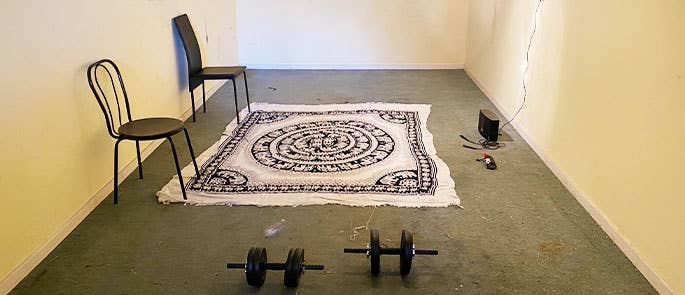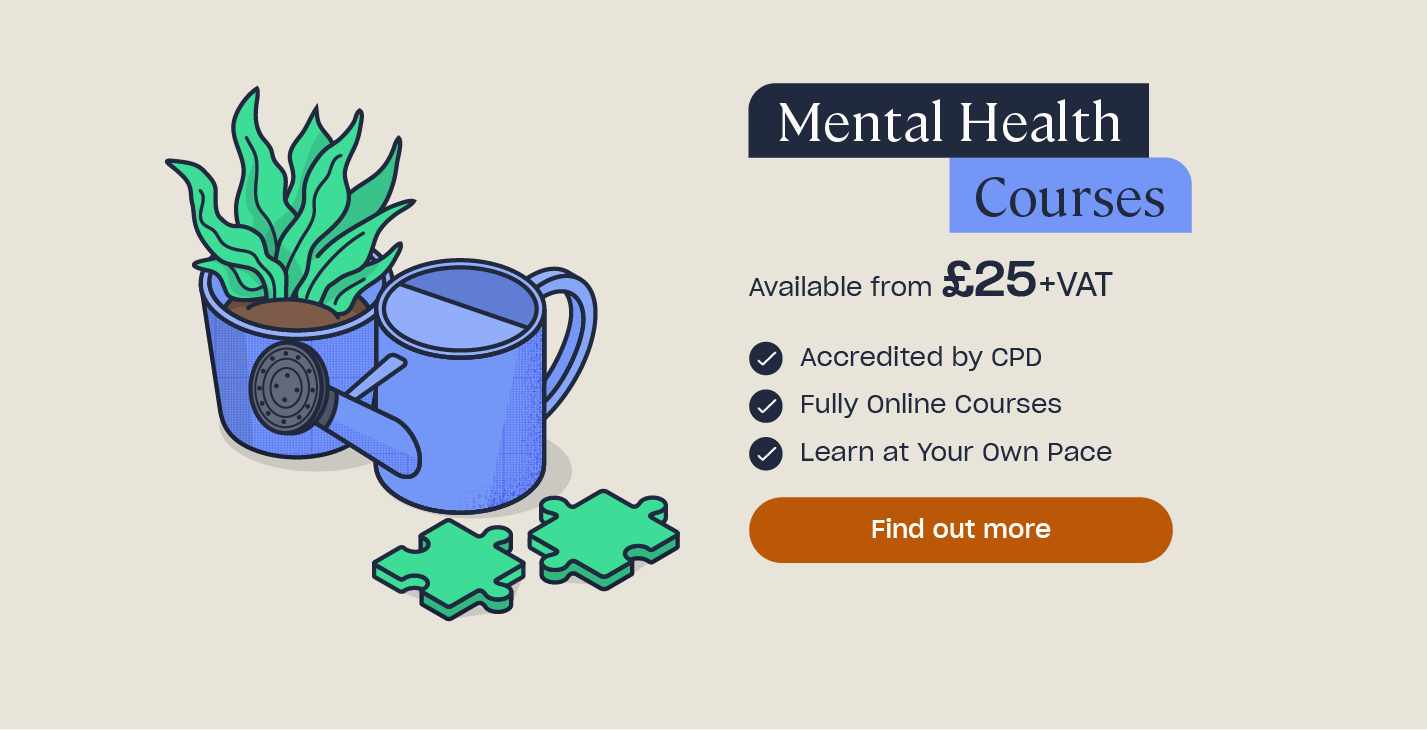Working from Home: Looking After Your Mental Health
On the whole, working from home is used ad-hoc as a tool to enable flexible working. Some utilise this only when they need to, while others may choose to work from home more regularly and welcome the change when they do so.
Globally, we find ourselves in a completely unprecedented position where, due to the COVID-19 pandemic, the majority of the workforce is having to work from home, without a choice. On the one hand, those of us who can are in an incredibly lucky position. However, it can be incredibly difficult to adjust to working from home, especially if it isn’t something you’re used to.
In this article, we’re going to look at some actionable tips that you can use to look after your mental health and wellbeing while working remotely. We’ve asked the staff here at High Speed Training to share their own ways of keeping as positive and productive as possible while under these different circumstances.
Tips for Working Remotely
1. Try and emulate your routine.
Many of our High Speed Training family pointed to the importance of maintaining usual habits, wherever possible. When working from home, there is a temptation to swap commuting time for extra sleep and relish the novelty of working in comfy clothes. However, it’s important to keep doing the things that help you focus and get ready for the day ahead.
I’m still making sure I get dressed and ready as if I was coming into the office. At the end of the day, I do my usual jobs around the house to keep a sense of normality.
Liz Burton, Content Author
2. Move your body.
Exercise is a funny word; some people love it and some people couldn’t think of anything worse. It’s important to acknowledge that exercise doesn’t have to be a gruelling hour of forcing yourself through something you hate. Physical activity is proven to reduce stress, elevate mood, improve sleep and replenish energy which are all things we need to be mindful of during this difficult period of isolation. You can learn more about the benefits of exercise on mental health in our article, here.
My makeshift garage ‘gym’

Disclaimer: This was pre vacuum!
In most cases, 30 minutes a day is thought to be enough to have a significant positive impact on mood and you can fill this time with any activity that makes you feel good. There are an abundance of home workout videos available on social media and via downloadable apps that offer both paid for and free services. Joe Wicks, also known as The Body Coach, has launched a morning PE class on his YouTube channel designed to help young children and parents keep fit together in the absence of the usual school and work routine.
We’re an active bunch at High Speed Training, with many of us relying on runs, online classes, yoga, walks around the garden and stretching to help us separate work time from home time.
I’m really enjoying running outside first thing in the morning. I feel lucky to be able to hear the birds tweeting and to run alongside the river. It certainly helps strip away the cabin fever!
Jamie Hogg, Sales and Business Development Manager
3. Connect with your team and colleagues.
Remotely interacting with your colleagues is not only necessary to ensure business as usual tasks are getting done. In fact, social interactions and workplace friendships are thought to encourage productivity. Engaging with our team is so important for uplifting spirits and even more so at a time like this.
Some of our teams catching up virtually

There are a number of ways to still conduct your regular meetings, team catch ups and 1-2-1s. Platforms such as Zoom, 8×8, and Google Hangouts are all reliable and secure. At work, you’d usually be able to turn to your colleagues to share jokes and stories at intervals during the day. In this situation, we encourage you to do the same virtually. If you use instant messaging services, such as Slack, they have a handy video call tool you can use if you need a brief pick-me-up.
Do you usually head out for a drink with some colleagues after a long day? Pour yourself a glass of your favourite tipple and have a conference call – we’ve already run one or two and called them ‘Vino Videos’!
4. Create a motivating playlist.
Music provides proven ‘feel good’ benefits. Create a playlist full of tunes that you know make you smile or feel energised.
Make it a collaborative effort
Create a shared playlist and share songs of the day to keep everyone inspired and bring a sense of ‘togetherness’
Arron Richmond, Digital Marketing Executive
5. Have guilt-free breaks.
At work, even in an office situation, we get up, move around, do tea/coffee runs, or pop to see our colleague in a different department. We find ways to stretch our legs and refocus our minds so we can get on with the tasks at hand.
It’s easy to get distracted at home so I’ve been actively trying to be more aware of my own productivity. If I notice I’m lagging, I make sure I take a quick, guilt free break, even if it’s to sit for 5 minutes in the garden with a cuppa. It feels like a mini recharge.
Sarah Taylor, our Content Author and Hospitality Specialist
Need a Course?
Our Mental Health Awareness Course aims to increase your understanding of common mental health conditions and of your own mental health, including how or when it might suffer, and what you can do about it.
6. Get Productive.
You could do things like finding little chores to do around the house in order to feel a sense of accomplishment.
I find cleaning helpful. I’ve been doing that and other small jobs around the house on lunch breaks – it’s a nice break from screens!
Our Illustrator, Mark Owens
7. Add some greenery.
For some of our team, plants are an essential item for keeping calm.
I have been littering my makeshift home office with plants. They help me to reduce stress, clean the air and they absolutely boost creativity.
Our Head of Creative and Design, Richard Lumbomski
8. Take up something new.
What’s that hobby you’ve been saying you want to pick up but can never find the time? Whether it’s reading a book, learning a language, or mastering some practical skills, now could be a great time to get your teeth into something new. It is hard to find the motivation sometimes, especially when a situation feels unsure or beyond your control. However, ‘purposeful activity’ is proven to reduce feelings of low mood, anxiety and depression.
Our Marketing Campaign Manager, Shauna Mullins, and Learning and Development Analyst, Katie Martinelli, are finding new classes to do online, such as Yoga.
9. Have things to look forward to!
This is slightly more tricky in the current Lockdown situation but the team at High Speed Training have been getting creative. One of our Sales Consultants, Ali, suggests group planning your family meals and thinking of tasty new recipes to try together at the end of the day:
Our time around the table has always been important but it seems more poignant than ever now as we can all chat about how we are doing and share some laughs too.
Ali Oldham, Sales Consultant
Writing a list of things to do can be a great way to keep you motivated during the day as one of our Content Authors, Ellie Collier, has discovered:
I’ve written down things like facetime my family or starting a new book which is keeping me focused during the working day, as I know I have fun things that are just ‘for me’ to look forward to.
Ellie Collier, Content Author
10. Breathe.
This might seem like a trivial suggestion but breathing is a very effective tool for managing stressful situations and overwhelming emotions. Many of the staff at High Speed Training have been using apps such as Headspace, Insight Timer and Calm to try out anything from a 5 minute breathing exercise to guided meditations.
Getting Used to a “New Normal”
Working from home, at the best of times, tends to receive a mixed reaction. For some, working in their own environment can make a pleasant change from the status quo. It is welcomed when we need a little flexibility from our usual working routine. Some report working from home to occasionally improve productivity, especially if they spend office time in a lot of meetings.
For many though, the camaraderie of the work environment is so important, in addition to having a physical place of work to “go” to that is separate from home. For some people, working remotely can be boring and lonely which are two things that can have a sizable impact on productivity. Feelings of boredom and loneliness can also lead to more serious problems with mood, such as prompting feelings of depression, or exacerbating it in those who already struggle with poor mental health.
The important thing to remember, however you feel, is: it’s ok. It’s ok to find things tough, it’s ok to feel unsure, it’s ok to not really know what to do with yourself! Sometimes, acknowledging these feelings is enough to make someone feel even slightly better.
Try to anticipate distress – it’s normal to feel vulnerable and overwhelmed and it is important to acknowledge these feelings. Keep in touch with your friends, family and colleagues as we work better in company and with support.
Jenny Wells, HR Manager and Mental Health First Aider
Seek Help if You Need It
If you are experiencing feelings of anxiousness, low mood or anything else out of the ordinary for you as an individual, it’s important that you seek help. If you don’t feel comfortable reaching out to a family member, or getting in touch with a friend, then the following resources and contacts may be useful:
What to Read Next:
- Risk Assessment for Working from Home
- Do You Know How to Set Up A Desk Ergonomically?
- How to Deal with Anxiety at Work
- How to Manage Stress at Work
- How to Get Employees Excited About Returning to the Office
- Online Mental Health Awareness Training











